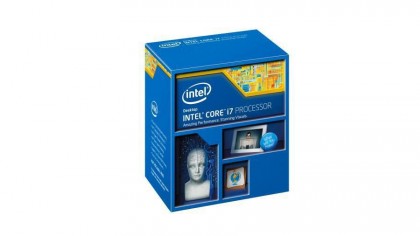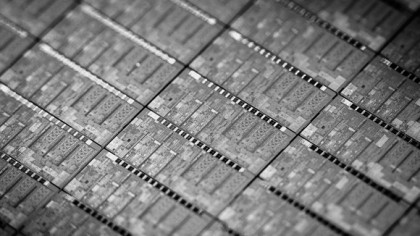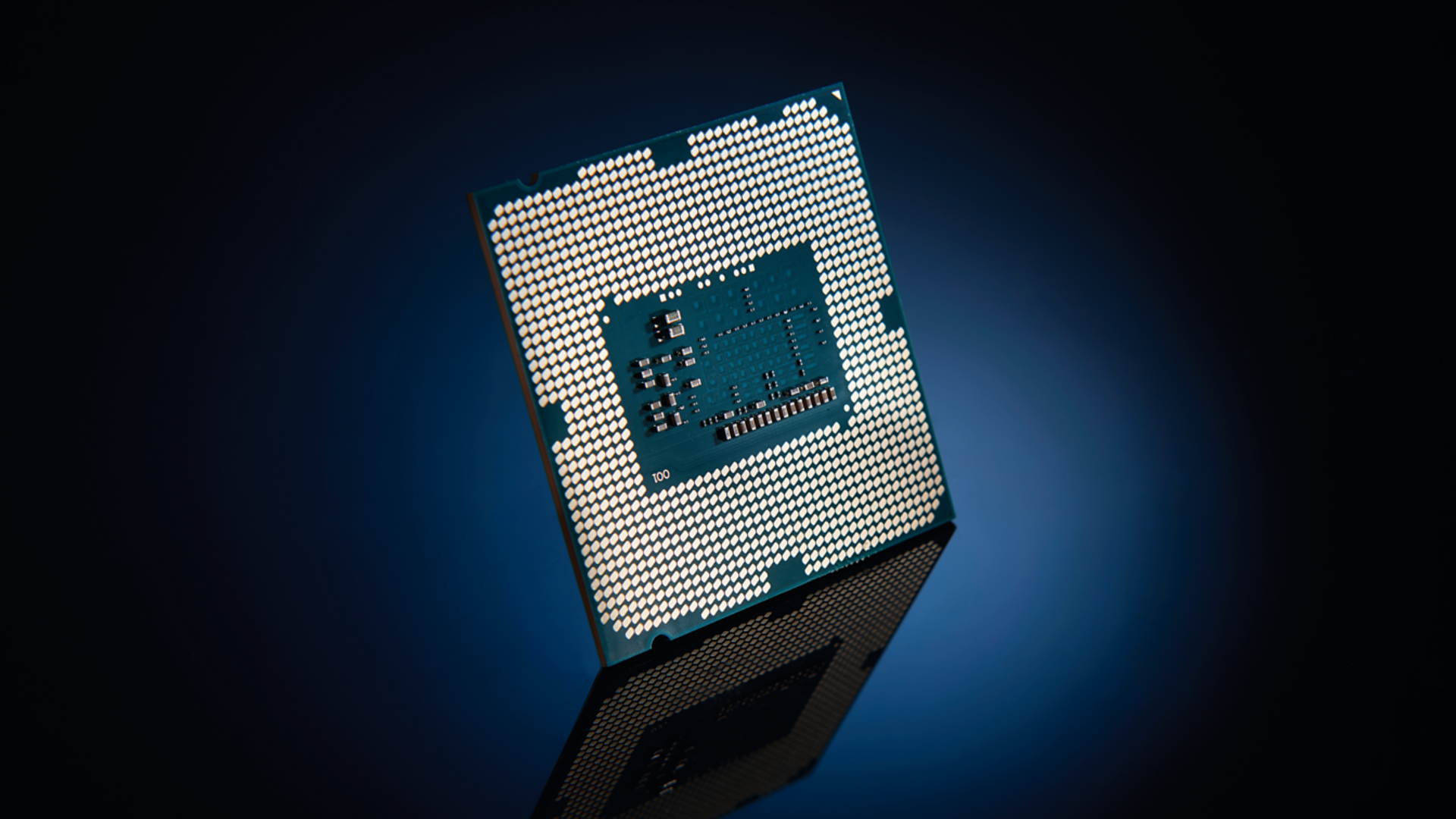Why you can trust TechRadar
The actual raw performance is the meat of the matter, though, isn't it? The Core i7 5775C is technologically the top processor in Intel's standard desktop line-up. Well, for the next few weeks until Skylake drops anyways…
But what does this £300 (around $470, or AU$630) processor offer that makes it a relevant upgrade to the cheaper Devil's Canyon Core i7?
Cue steady intake of breath and teeth-sucking...
That's a tricky question because on the face of it there seems to be no reason to upgrade from your current Haswell i7 – and I'd probably say the same for most existing i5 chips too. The Core i7 5775C is a good chunk of change more expensive than the i7 4790K and in terms of straight clock speed, and thus gaming performance, it's a bit of a bust.
The clear air between the two regarding clock speed is the real kicker right there. The 5775C theoretically maxes out its Turbo clock at 3.7GHz, but in our testing we never saw it go above 3.6GHz. That was with both the Asus or ASRock Z97 boards we tested with.
When the 4790K is hitting 4.4GHz at stock clock speeds that gives it a pretty hefty performance lead when it comes to standard gaming performance. It's the same across our suite of benchmarks – both X264 and Cinebench give a landslide victory to the last-gen CPU.

The bright spot though is in the memory bandwidth figures. The Broadwell chip shows significant improvements in memory performance, topping anything we've seen outside the server-bothering antics of the Ivy Bridge E processors.
And what of overclocking? That die-shrink ought to deliver improved overclocking prowess, but whether it's the limitations of the motherboard we were using, the limits of our CPU review sample or merely immature board/chip drivers, we couldn't quite hit the standard 1GHz overclock Intel CPUs often offer.
Boosting it from a 3.3GHz base up to 4.2GHz is no mean feat however and does improve performance, but nowhere near enough to worry the existing top Haswell chip in straight CPU performance terms.
Power sipping
But this isn't where Broadwell is meant to compete. Despite the crazy-high price tag this isn't a high-end CPU, this is a low-power Core i7 with high-end graphics and some limited overclocking performance. That in itself is a rarity.
And if you're desperately after a low-powered processor but still one with a bit of oomph behind it then this could be your chip. At stock speeds the peak power we were seeing during Cinebench testing runs was just 104W, with the CPU only a shade over 50 degrees.
Now, given the low clock speed that's possibly to be expected. But even when overclocked up to 4.2GHz the CPU was still well under 60 degrees and only drew another 50W at maximum.
That's some seriously impressive power and temperature efficiencies – you can see why it's a mobile part in the main. It's a shame our testing setup couldn't push the overclocking any further because there simply wasn't any thermal throttling within eye-shot of the Broadwell chip.
Unfortunately some issues with our sample and our standard Asus RoG Maximus VII Hero board meant it wouldn't overclock, so we had to switch to the less-able ASRock Z97 Extreme4. That's still a quality board, but not quite on the same level as the RoG in the overclocking stakes. A little extra voltage gained us an OS boot at 4.4GHz, but nothing stable.

Processor graphics
We haven't spoken about the graphics performance yet though, but that is a massive improvement over the CPU graphics of the Haswell regime. Having more than twice the EUs of the HD Graphics 4600 – 48 plays 20 – the Iris Pro 6200 delivers a huge performance boost over the top socketed Haswell chips.
The difference at top 1080p settings means gaming performance actually goes from practically slideshow levels to genuinely playable. Adjust your visual expectations a touch and you'll get decent 1080p gaming performance out of the i7 5775C.
Importantly though the Core i5 5675C has the same graphics core for a lot less – making that a far more tempting chip if you're after quality CPU graphics performance without the price premium attached to an i7.
Benchmarks
CPU processing performance
Cinebench R15 - Index score: higher is better
- Intel Core i7 5775C: 763
- Intel Core i7 4790: 880
- Intel Core i5 4690K: 586
X264 v4.0 - Average FPS: higher is better
- Intel Core i7 5775C: 45
- Intel Core i7 4790K: 53
- Intel Core i5 4690K: 40
Memory performance
SiSoft Sandra - GB/s: higher is better
- Intel Core i7 5775C: 20.14
- Intel Core i7 4790K: 17.73
- Intel Core i5 4690K: 17.72
1080p gaming performance (w/GTX 780 Ti)
Metro: Last Light - (min) Avg FPS: higher is better
- Intel Core i7 5775C: (20) 44
- Intel Core i7 4790K: (11) 52
- Intel Core i5 4690K: (10) 52
Battlefield 4 - (min) Avg FPS: higher is better
- Intel Core i7 5775C: (58) 77
- Intel Core i7 4790K: (59) 94
- Intel Core i5 4690K: (53) 86
Power and overclocking
Peak platform power draw - Watts: lower is better
- Intel Core i7 5775C: 104
- Intel Core i7 4790K: 195
- Intel Core i5 4690K: 122
Maximum overclock - GHz: higher is better
- Intel Core i7 5775C: 4.2
- Intel Core i7 4790K: 4.7
- Intel Core i5 4690K: 4.7
Processor graphics performance
Cinebench R15 OpenGL - Avg FPS: higher is better
- Intel Iris Pro 6200: 54.35
- Intel HD Graphics 4600: 33.15
Bioshock Infinite - (min) Avg FPS: higher is better
- Intel Iris Pro 6200: (6) 20
- Intel HD Graphics 4600: (2) 11
Grid 2 - (min) Avg FPS: higher is better
- Intel Iris Pro 6200: (24) 30
- Intel HD Graphics 4600: (15) 19
